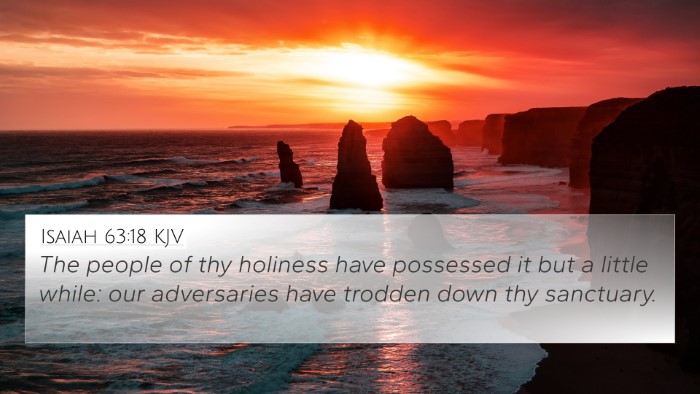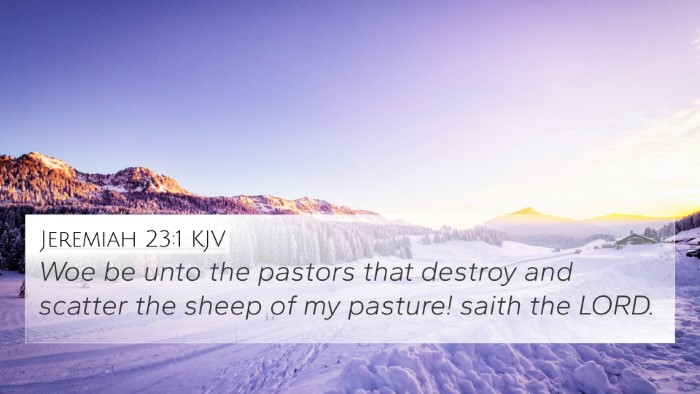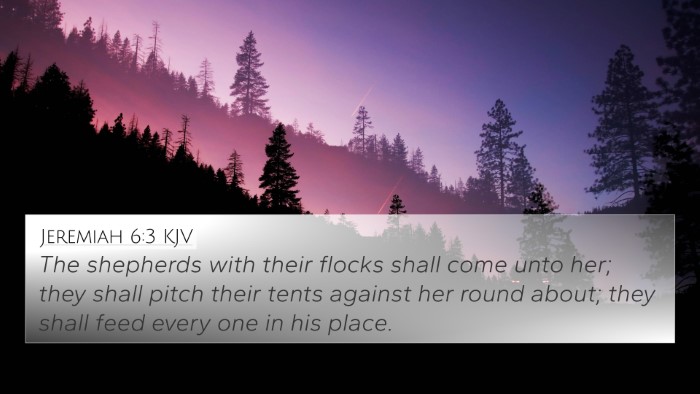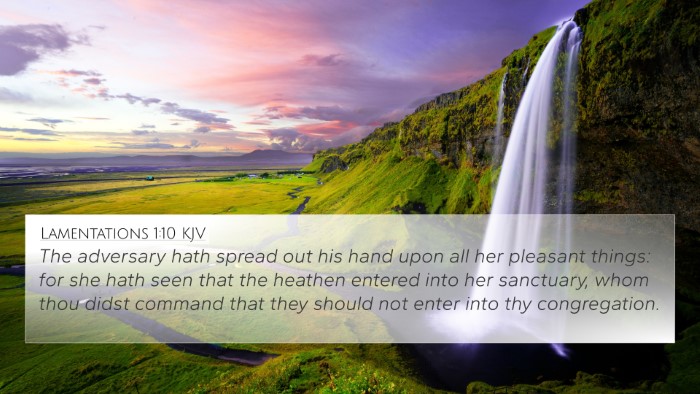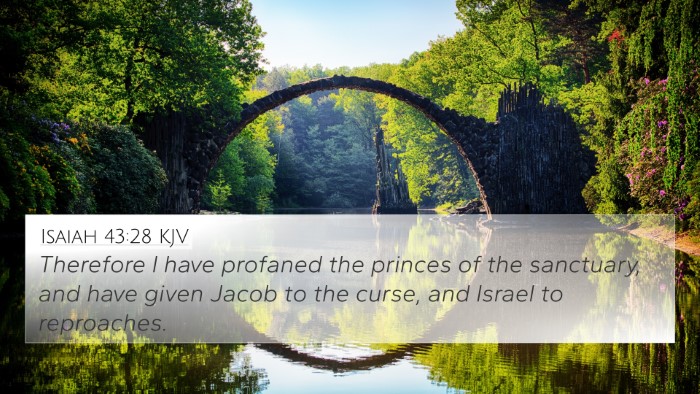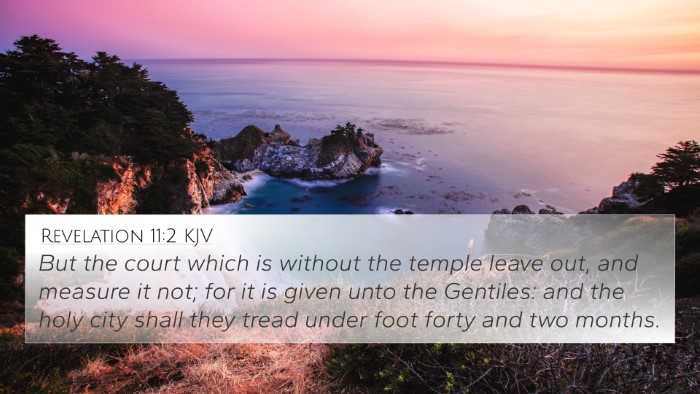Understanding Jeremiah 12:10
Jeremiah 12:10: "Many pastors have destroyed my vineyard, they have trodden my portion under foot, they have made my pleasant portion a desolate wilderness."
Context and Background
This verse occurs within a rich and complex context in Jeremiah’s prophetic ministry. Jeremiah decries the devastation wrought upon Israel—the vineyard symbolically represents God's people. The reference to "pastors" highlights the leaders' failure in their spiritual duties, leading to desolation.
Summary of Commentary Insights
Here we will summarize insights drawn from prominent public domain commentaries including Matthew Henry, Albert Barnes, and Adam Clarke regarding this verse.
Interpretation from Matthew Henry
Matthew Henry emphasizes the metaphor of the vineyard, illustrating God’s expectations of His people and leaders. He articulates that the destruction of this vineyard was not merely the consequence of external forces but of internal failings among leaders who misled their flock.
Insights from Albert Barnes
Albert Barnes elaborates that the “pastors” or shepherds in this context represent both spiritual and civil leaders who have neglected their responsibilities, leading the people away from God's guidance. The consequence of their negligence is starkly depicted as a desolate wilderness, pointing to the dire state of the nation.
Reflections from Adam Clarke
Adam Clarke discusses the poetic nature of Jeremiah’s writing, highlighting how the imagery of the vineyard signifies life, nurturance, and divine possession. His analysis suggests that the betrayal from the leaders leads to severe consequences for the community.
Cross-References and Thematic Connections
This verse ties intricately with several other scriptures, illuminating its themes:
- Isaiah 5:1-7: The song of the vineyard outlines God’s disappointment with Israel’s unfaithfulness.
- Ezekiel 34:2-10: God’s condemnation of the shepherds of Israel who failed to care for their flock.
- John 10:12-13: Jesus contrasts good shepherds with hirelings who abandon the sheep.
- Psalms 80:8-13: A plea to God, recalling Israel as a vine brought out of Egypt that faced destruction.
- Matthew 21:33-41: The parable of the wicked tenants, depicting God's judgment upon unfaithful leaders.
- Jeremiah 23:1-4: A warning against the shepherds who destroy and scatter God’s sheep.
- Hosea 4:6: The destruction of God’s people due to a lack of knowledge, stressing the significance of proper leadership.
Thematic Analysis of Leaders in Scripture
Throughout scripture, the theme of leadership is pivotal. Failures of shepherds resonate deeply in the lives of God’s people. Jeremiah 12:10 serves as a profound reminder of the responsibility leaders bear, echoing through both the Old and New Testaments.
Connecting Bible Verses
As we explore these connections, we see how Jeremiah’s lament can be paralleled with Jesus’ teachings about good and bad shepherds, thus forming a thematic dialogue that stretches across the canon of Scripture. Here are some aspects to explore:
- Leadership Accountability: Cross-reference between Jeremiah 12:10 and 1 Peter 5:2, which speaks about shepherding the flock willingly and not for selfish gain.
- Consequences of Neglect: Draw parallels with Luke 12:47, stressing that those who know their master's will but do not act will be judged more harshly.
- Divine Patience: Link to Romans 2:4, discussing God’s kindness as a call to repentance, despite the failure of leaders.
Tools for Cross-Referencing
Understanding cross-references can deepen one’s study of the Bible. Here are some tools and methods:
- Bible Concordance: Helps locate verses and their connections.
- Bible Cross-Reference Guide: A systematic method for tracking thematic and narrative connections.
- Cross-Referencing Bible Study Techniques: Encourages exploring context and connections to enrich comprehension.
Conclusion
Jeremiah 12:10 delivers a powerful message regarding the responsibility of spiritual leaders. The connections established with other Biblical texts underscore the timeless relevance of this scripture. Engaging with this verse through cross-referencing invigorates our understanding and invites reflection on our spiritual leadership today.



